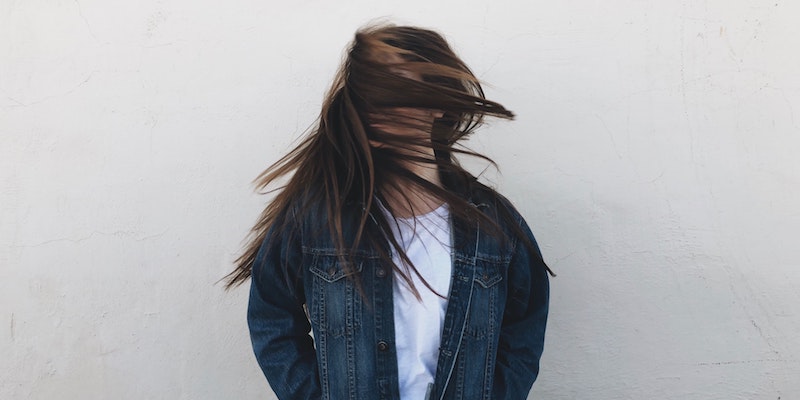
Anxiety is a common affliction, but its symptoms are not always obvious to the person who suffers from this condition or the people who love them. They may feel crazy or be marked as a “worrier,” but there is nothing crazy about anxiety. It’s a valid mental health condition that millions of Americans suffer from without diagnosis or treatment.
Not getting professional help or going undiagnosed often leads to desperate choices — the person living with anxiety may turn to alcohol or drugs to help numb the physical or psychological discomfort they experience.
Types of Anxiety Disorders
Before you try to determine if your loved one is treating their anxiety with alcohol or drugs, it’s important to understand that their mental health condition could have developed for any number of reasons. Anxiety can manifest in many ways — one person may experience paralyzing fear while another lives with a continuous sense of dread. A family history of anxiety, overexposure to stress, or an experienced trauma are often considered main causes of anxiety.
Some of the most common types of anxiety disorders include:
- Generalized anxiety disorder: The dread that a person feels in generalized anxiety disorder can be constant and often has no specific cause or focus. This person is not merely worried, they are saddled with powerful, pervasive thoughts of doom, dread, and fear — and the fears are often not based in reality.
- Post-traumatic stress disorder (PTSD): When a person experiences or witnesses a traumatic event – from sexual assault to difficult childbirth, military combat to natural disaster – they can develop PTSD. This condition is characterized by flashbacks, irritability, mood changes, insomnia, hypervigilence, paranoia, and more.
- Social anxiety disorder: People with a social phobia are fearful of interacting with others, whether that means going to crowded places, speaking in front of others, or participating in social activities. They can experience intense fear in public places which can lead to panic attacks or agoraphobia, a helplessness or embarrassment of what might happen in certain places or situations.
- Panic disorder: When a person experiences a panic attack, they feel an overwhelming sense of doom, like they are about to die. This can cause hyperventilation, rapid heartbeat, chest pain, dizziness, vomiting, nausea, and other physical side effects. This overwhelming and uncontrollable terror, however, is usually not rooted in any real source of danger.
Symptoms of Anxiety
Though there are several variations of anxiety, all anxiety disorders do have some symptoms in common. It’s not always easy to determine if a loved one is suffering from anxiety because they may not voice what they’re feeling – they may not, in fact, know how to put words to the feelings they’re experiencing. If you know them well, however, you are likely to recognize when something is different.
Look out for any of the following signs:
- An intrusive fear that occurs on most days; this fear can be general or specific
- Repeated attempts to resolve the fear is unsuccessful
- Decline in quality of life
- Dissatisfaction with relationships, social life, job performance, and more
- Physical symptoms of anxiety may be easier to notice, especially if your loved one is not voicing what they are mentally feeling. It’s difficult to hide physical anxiety responses like:
- Shortness of breath
- Rapid heartbeat
- Chest pain
- Trembling
- Dizziness
- Stomach pain
- Insomnia
- Sweating
One way some people choose to fight their anxiety is to cover it up or force it to go away through substance abuse. They may abuse alcohol, drugs, tobacco, or adopt behaviors like overeating to manage their symptoms by feeling something else entirely.
Self-Medicating the Anxiety Away
Many people who live with the stress, worry, and all-encompassing fear caused by anxiety will do just about anything to make the discomfort stop. Often, they turn to drugs or alcohol to self-medicate to make the physical pain and unrelenting mental attacks subside. Unfortunately, when substance abuse develops because of anxiety, this misuse of drugs or alcohol can cause neurological shifts that intensify rather than soothe the anxiety.
Relying on substances for any reason can lead to an unhealthy relationship with drinking or an addiction to drugs. These problems need to be treated independently and together, and a holistic treatment center that understands a dual diagnosis is just right for a person who suffers from anxiety and substance abuse.
Addiction is a chronic disease of the brain, and anxiety is a form of mental illness. Both conditions are treatable with the right intervention, therapy, and professional help.
Learn more about holistic rehab and dual diagnosis and treatment from the therapeutic team at Beachside Rehab. Contact our trained admissions counselors at (866) 349-1770 to discuss your individual needs and how luxury rehab can work for you.
